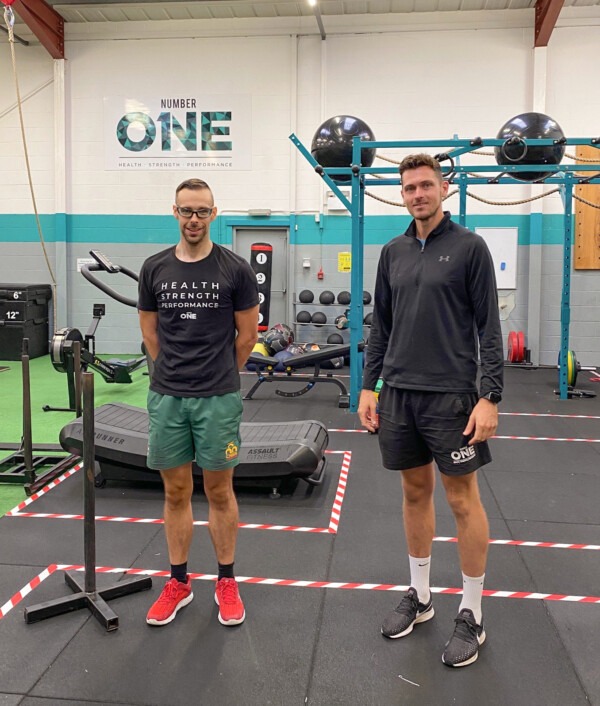
This summer author, speaker and autism champion, Andrew Edwards (pictured above left), has told us about his lockdown fitness regime and how he started playing for his local cricket team. In his latest blog, Andrew discusses the affect autism has had on his diet while trying to stay fit…
How autism affects my diet
By Andrew Edwards
As someone with autism who is very much into health, fitness, strength and conditioning, my one fallback has consistently been my nutrition, keeping me from reaching my physical goals. This is due to me eating too much or the same foods repeatedly.
However, more recently, I fell into a different habit of consuming too much protein. This led me to putting on 10kg in weight last winter. I justified this behaviour by saying I wanted to bulk up. I felt that I had let my then Strength & Conditioning coach Geraint Roberts down as I had lost four stone in the first year he coached me.
After Geraint left to go into another career, I contacted him to express my apologies. He said to me that the way media perceives carbohydrates as an “evil” was at fault for my then attitude regarding them. He always encouraged me to have a “healthy relationship” with food and, within reason, not to deprive myself or feel guilty.
After some time of failing to process that I needed carbohydrates to fuel my training – with more daily grams than protein, which is for repairing the muscles and giving energy post a workout – I finally processed this information. It came after a chat with my elder sister, Melanie, and reinforcement from Chris Hibbert, who replaced Geraint as my strength and conditioning coach.
“Hibbo” has carried on the fantastic work that Geraint undertook. During the Coronavirus lockdown, he continued to programme full and thorough sessions for me every day at home on the TrainHeroic application. This has enabled me to lose 16kg in weight, along with much improved nutrition due to me finally processing the information about the foods I needed to eat. I have continued to get stronger, fitter and healthier since returning to training with “Hibbo”, along with other fitness work away from the gym.
The difficulty with the processing of something that could be quite easy to digest for some is, I think, related to my autism. I am quite lucky that I can process more than many with autism, but this doesn’t mean I don’t have difficulties with this. I require information to be calmly, clearly, concisely, and sometimes repeatedly articulated to me before it dovetails into place.
Growing up, I used to overeat and steal food from the cupboards of my house and raid the fridge. This contributed to me being significantly overweight through most of my childhood and twenties. I still have bad cravings for ice cream. After this, I used to want to live a nutritious lifestyle, but I then ate the same foods repeatedly, even some I didn’t like if they were deemed “healthy”.
Before I started training in April 2017, I was ready to give up on health as I was overweight and feeling that I wasn’t getting anywhere after a decade of regular training. In the recent past, whilst volunteering with autistic youngsters, I realised that my predicament seems to be more prevalent than I previously realised in those with autism. Some of the behaviours expressed by the youngsters surrounding food reminded me of different eras of my own relationship with food, from overeating and sneaking foods to consuming too little.
I feel that eating disorders are an underdiscussed topic regarding autism. Yes, it is an extension of obsessional behaviours, but it seems the general consensus regarding eating disorders has been that anorexia and bulimia are the most widely discussed conditions in this area. I feel there should be more recognition and discussion regarding eating disorders accompanying autism with those diagnosed or awaiting a diagnosis.
I imagine there could be as many out there with autism and related conditions, having these difficulties with food, as there are people with more recognised eating disorders. It would be very interesting to hear a wider discussion on eating disorders and autism.
I believe that my experiences with food and autism aren’t that unique but I would like to hear more constructive discussion on the topic. It would be interesting to hear other families’ experiences of this under discussed part of autism.
Find out more about Andrew and read more of his writing by visiting his website: www.andrewedwardsautism.co.uk.
